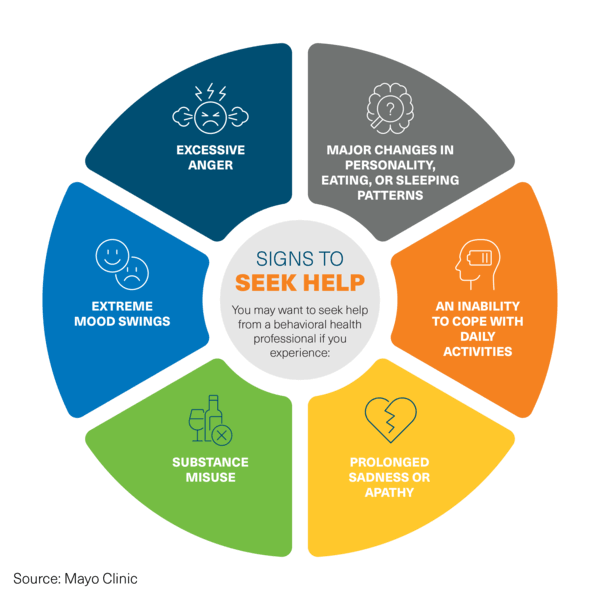When and where to find behavioral health services
We all know what to do when faced with a fever or physical injury. But when it comes to managing behavioral health challenges, the next steps can be less clear.
When does excessive sadness or anxiety turn into a medical issue that needs to be addressed? When does difficulty concentrating or making decisions become a cause for concern?
And, with more than four out of 10 Americans living in areas with a shortage of behavioral health providers, where can you turn for support?
Kathy Wolfe, Senior Director of Care Management at Capital Blue Cross, and her team of dedicated care managers have been asked many of these questions. They are committed to helping members find the care they need.
“Sometimes it takes a while before they realize they need support for behavioral health,” Kathy said. “(A member) may say ‘I have anxiety but what can I do about it?’ At Capital Blue Cross, we are working to make sure our members know where to go to get affordable behavioral health care.”
When should you seek behavioral health services?
Everyone experiences stress from time to time. If you experience a few weeks of sadness and trouble sleeping but are still able to care for yourself and others, you may feel better by simply engaging in exercise and social contact.
According to the National Institute of Mental Health, if you have symptoms that last longer than two weeks, you may want to consider seeking behavioral health services. If you or someone you know needs help now, call or text the National Suicide Prevention Lifeline right away by calling 988 or 911.
Elisa Coren, a Behavioral Health Case Manager at Capital Blue Cross, said members also seek behavioral health treatment while dealing with a newly diagnosed or chronic (long-term) physical injury or illness.
“With chronic pain, sometimes comes anxiety and depression. … it’s a life change,” Elisa said.
That’s why, if you’re experiencing symptoms such as sadness or poor sleep, a good place to start the discussion is with your primary care provider, says Dr. Jeremy Wigginton, Chief Medical Officer at Capital Blue Cross.
“It is well-known that those with severe illness often have behavioral health needs,” Dr. Wigginton explained. “Whole-person care is the cornerstone of overall well-being. Just as we seek care for physical ailments, it's crucial to address behavioral health struggles with the same urgency and compassion.”

How to find behavioral health services
Mental wellness and good behavioral health involve developing healthy behaviors to promote overall wellness. It includes understanding how habits, actions, and choices impact mental and physical health, and encompasses the prevention and treatment of behavioral health conditions, substance abuse, and other behavioral issues.
For instance, behavioral health providers can help more effectively address anxiety or quit drinking by helping you recognize stressors and find healthier ways to manage them.
Capital Blue Cross members have several ways to tap into behavioral resources:
- MyCare Finder, available through Capital’s member portal, helps identify a behavioral health provider in your area and verify that they’re in-network.
- VirtualCare gives you access to a behavioral health provider for an online appointment. This may be a good option if you have a shortage of behavioral health providers in your area or there is a long wait to schedule an in-person appointment.
- Capital’s Care Management team is made up of experienced behavioral health professionals – including nurses, social workers, licensed professional counselors, and a peer support specialist – and can help you identify in-network behavioral health providers, develop a care plan, and address non-medical barriers that could impact your treatment. Use this self referral form to be connected with a care manager.
Connect with Capital Blue Cross
At Capital Blue Cross, we are committed to expanding our behavioral health network – adding more than 120 in-network providers since the fall of 2024.
If you or someone you know is struggling, don't wait. Visit Capital’s member portal, or contact Member Services (using the back of your ID card).